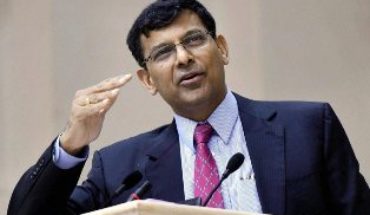New Delhi: The Sensex soared 848 points while the Nifty reclaimed the 17,500-mark on Tuesday after Finance Minister Nirmala Sitharaman unveiled a bigger Rs 39.45 lakh crore Budget, with higher spending on infrastructure to spur economic recovery and create jobs.Metal, realty and cement stocks saw robust buying, while selling in auto and telecom counters capped the gains.
After a strong start, the BSE Sensex succumbed to a sudden bout of selling following the Budget presentation, but staged an immediate rebound to end 848.40 points or 1.46 per cent higher at 58,862.57, marking its second straight session of gains.On similar lines, the broader NSE Nifty surged 237 points or 1.37 per cent to end at 17,576.85.Tata Steel hogged the limelight in the Sensex pack, zooming 7.57 per cent, followed by Sun Pharma, IndusInd Bank, L&T, UltraCement, ITC, Titan and HCL Tech.In contrast, M&M, PowerGrid, SBI, Bharti Airtel, NTPC, Maruti and Reliance closed in the red, shedding up to 1.67 per cent.Sitharaman on Tuesday presented her fourth Budget, with higher spending on sectors ranging from highways to affordable housing with a view to fire up the key engines of the economy to sustain a world-beating recovery from the pandemic.Contrary to expectations, Sitharaman did not tinker with income tax slabs or tax rates.Her Budget for the fiscal year beginning April 2022 proposed a massive 35 per cent jump in capital expenditure to Rs 7.5 lakh crore, coupled with the rationalisation of customs duty, an extension of time for setting up new manufacturing companies and plans for starting a digital currency and tax crypto assets.However, fiscal deficit was projected marginally higher at 6.9 per cent for FY22 as against 6.8 per cent estimated earlier, with the finance minister emphasising the need for stronger and sustainable growth through public investment.
“It is a long-term growth oriented budget which the market has welcomed, given no headroom for cautiousness and populist measures. It is expected to support growth in the future; however, it is missing some balancing measures in context of current inflationary and slowing economy.“Supportive measures were needed for rural, agriculture, low taxpayers and for sectors impacted by the pandemic. High capex, fiscal deficit and borrowing plans in the background of a high inflation, commodity and oil prices and rising interest rates will be challenges in the short to medium-term,” said Vinod Nair, Head of Research at Geojit Financial Services.Ashishkumar Chauhan, MD and CEO, BSE, said the Budget was very balanced and continued the incremental growth-oriented approach of the last budget.“In this budget, the finance minister provided a springboard for an investment cycle with the highest ever share of capex, focus on the development of national manufacturing capabilities and clean energy, tax rationalisation with no new taxes while maintaining its continuous growth focus on Aatmanirbhar Bharat,” he added.Sector-wise, BSE metal soared 4.92 per cent, followed by basic materials, capital goods, FMCG, healthcare, realty, industrials and IT.However, oil & gas, auto, energy and telecom lost up to 0.91 per cent. AGENCIES





